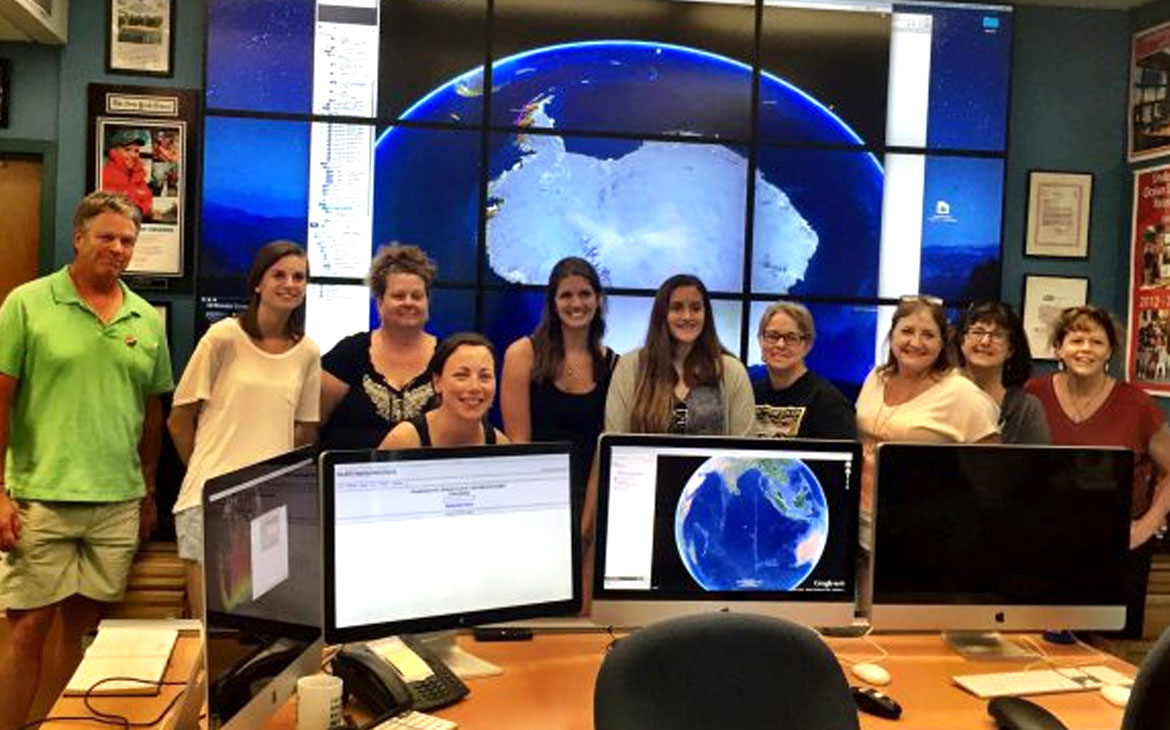The best way to teach science is hands on, right? That’s the conventional way, but the polar regions and the obstacle of over 9,000 miles between cutting-edge polar science and the scientists, teachers and students who could benefit from this interaction demand another way.
In June, Rutgers University departments of Marine and Coastal Sciences and 4-H Youth Development kicked off a unique Science Investigations (Sci-I) project, a four-day workshop for 21 educators in New Jersey and California who participated first-hand in an open-ended polar science investigation. The response was enthusiastic.
“The best part of this project is that it will help me bring real world experiences into my classroom and will support me thinking about how to teach authentic science,” said Matthew Fichter of Cranford Middle School, New Jersey.
Through hands-on activities, group discussions, scientist panels and field trips the teachers explored the data to make sense of it and to develop questions and hypothesis that were testable and finally to communicate their initial results.
The project is part of the Polar Interdisciplinary Coordinated Education (ICE) funded by the National Science Foundation. Polar-ICE’s mission is to connect polar scientists with broader audiences to further the impact of their research, while connecting educators and students with data and cutting edge science. The workshop helped the educators understand the scientific process using and working with the Palmer Long-Term Ecological Research (LTER) project and its data. Palmer Station is one of three U.S. research stations located in Antarctica and studies polar marine community, its habitats and the plants and animals that live there.
The workshop is only the beginning of this Sci-I project, which will target students from a wide range of racial and socioeconomic backgrounds.
“The exciting part of this project is that the data skills and process of science practices that we collaborated on during the week will be integrated into each classroom differently,” said Kristin Hunter-Thomson, Rutgers 4-H program coordinator in the Department of 4-H Youth Development. “All of it can augment what the teachers are already doing rather than being another thing to add on to their already packed curriculum.”
In 2017, up to 60 students from each school will attend the annual Student Polar Research Symposium to present their research to peers, teachers and students from other schools in the project, and polar scientists. These symposia will be held at California State University, Monterey Bay, in February and followed by a similar session at Rutgers in June.
“The Department continues with our Summer Science program for urban teens, which is designed to increase knowledge and skills in science, technology, engineering and math (STEM) while stimulating interest in STEM career paths,” said Janice McDonnell, associate professor and science engineering technology (SET) agent in the Department of Marine and Coastal Sciences.
“Then we finish out the summer with our EARTH workshop where 20 educators from all over the country will work with polar scientists to create new classroom activities using authentic science data.”
Article and Photo Credit: https://sebsnjaesnews.rutgers.edu/

